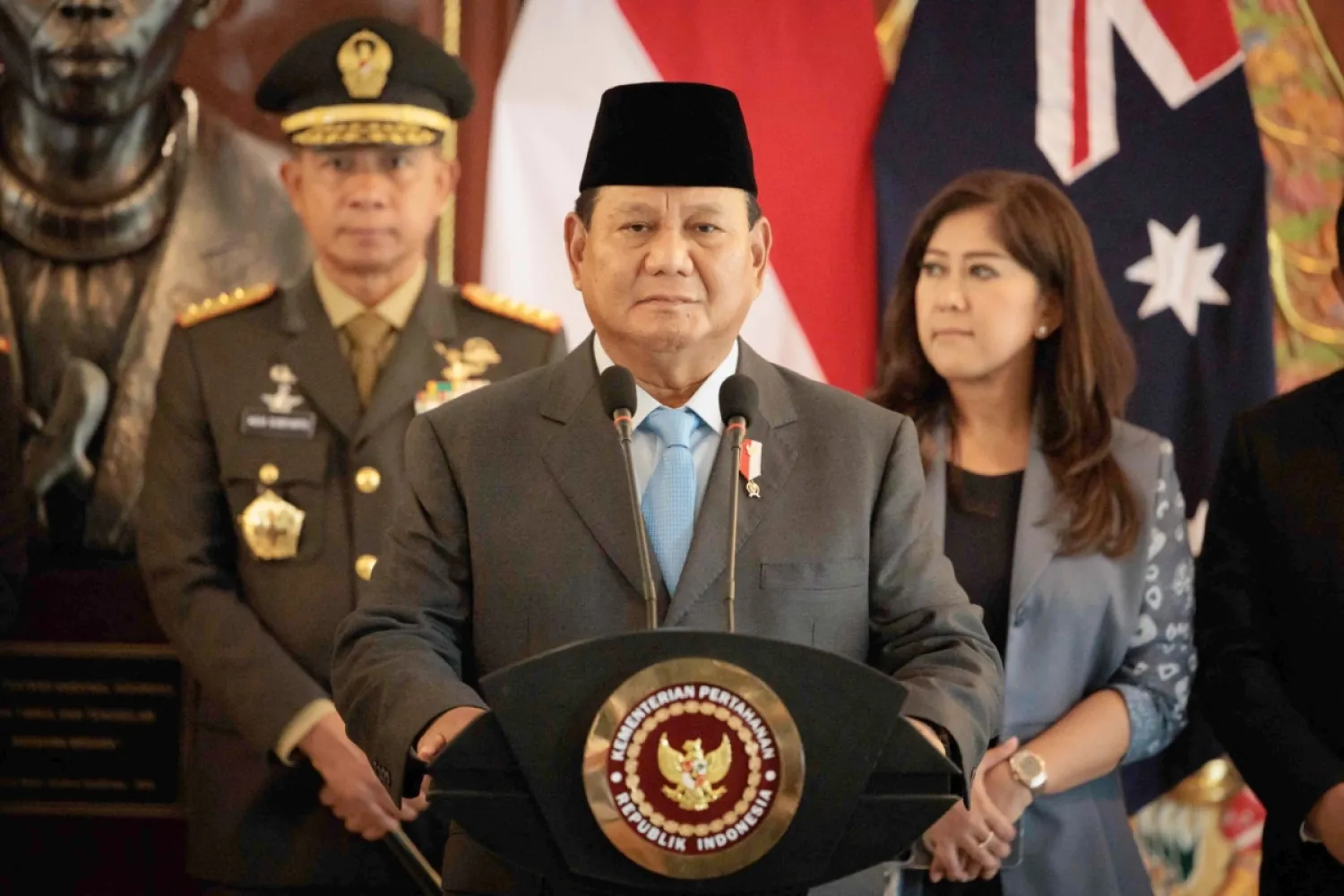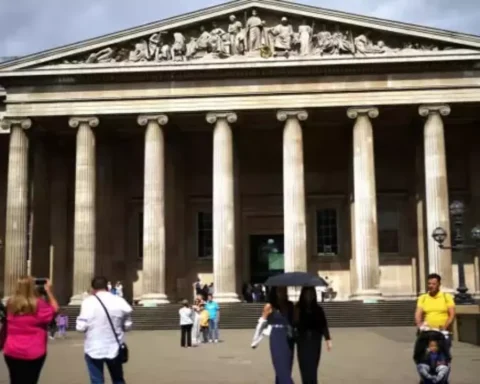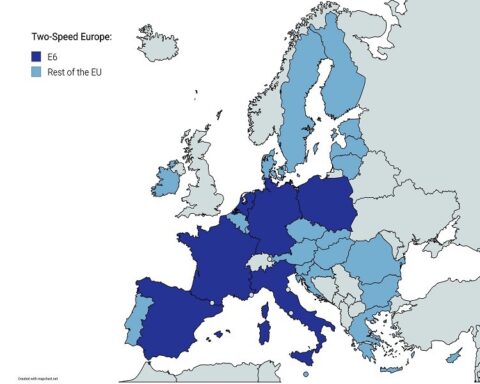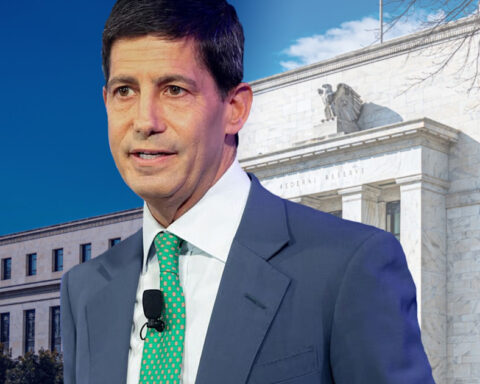Having Donald Trump back in the White House has set off a new wave of economic nationalism, and Indonesia is among its first casualties.
In his latest protectionist move, Trump has imposed tariffs of up to 32 per cent on key Indonesian exports, from textiles and electronics to seafood and footwear. These measures, aimed at countries with trade surpluses with the US, threaten to derail Indonesia’s already fragile recovery and are forcing Jakarta to concede that Indonesians can no longer build our future on the assumption that access to Western markets is guaranteed.
However, this disruption may prove to be a blessing in disguise, if Indonesia is willing to act decisively. Rather than fighting for space in an increasingly hostile Western-led trading environment, Indonesia should turn to more natural partners in the Global South. The Middle East — particularly the Gulf — is undergoing a profound transformation. Led by Saudi Arabia, the United Arab Emirates and Qatar, the region is diversifying its economies, investing in food security, clean energy, logistics, Islamic finance and digital infrastructure. This is where Indonesia fits in.
As the world’s largest Muslim-majority country, Indonesia brings both cultural affinity and economic complementarity to the table. The country’s halal-certified goods, digital start-ups, agricultural products and Islamic financial ecosystem can support the Middle East’s ambitions directly. In return, sovereign wealth funds from the region — many of which are actively seeking new emerging market partners — could play a transformative role in Indonesia’s infrastructure and energy transition.
The logic is clear: Indonesia and the Middle East share not just a religion, but strategic needs.
Both want to reduce dependence on the West. Both want to build economic resilience. And both are increasingly shaped by the shocks of geopolitical volatility.
Indeed, the effects of Trump’s tariffs extend beyond south-east Asia. Trump’s sweeping tariffs have also hit the Middle East hard, sparking oil price volatility, trade uncertainty and rising costs across export and import economies. Gulf states face shrinking revenues, while countries like Jordan, Morocco and Egypt grapple with inflation and disrupted exports. Small and medium-sized enterprises are strained, and even close US allies weren’t spared.
This shared exposure should be a wake-up call, and a foundation for solidarity. Nevertheless, President Prabowo Subianto has so far failed to place the Middle East high on Indonesia’s foreign policy agenda. Since his election victory, his engagements with the region have been limited, relying on ministers and envoys to manage ties. While he has met with Saudi and UAE leaders — Crown Prince Mohammed Bin Salman in Jeddah and Sheikh Mohammed Bin Zayed in Abu Dhabi — these meetings occurred before he assumed office officially and during the early days of his presidency. The lack of sustained presidential-level diplomacy since then sends a clear signal that the Middle East is not yet a strategic priority. This is a missed opportunity.
Indonesia has already opened discussions for a Comprehensive Economic Partnership Agreement with the Gulf Cooperation Council, although negotiations remain slow and under-prioritised. If Jakarta is serious about expanding its economic base, it must treat this agreement as a national priority. A successful CEPA could unlock preferential trade, increase labour mobility and facilitate high-level investments for Indonesia’s key sectors, from green energy and manufacturing to food processing and tech.
Trade deals alone, though, won’t be enough.
Indonesia needs to build deeper institutional ties with the Middle East. That means dedicating bureaucratic resources to the region, creating specialised units within the Ministry of Trade and national business chambers to facilitate smoother economic and investment coordination. It also means upgrading its halal certification ecosystem, which remains too opaque and under-resourced to meet regional demand at scale.
Indonesia’s large diaspora in the Arab world, especially in Saudi Arabia, the UAE, Qatar and Egypt, should also be seen as an asset. Students, professionals and skilled workers who already operate in these economies could be mobilised as informal trade envoys and connectors. With the right support, they can help Indonesian firms navigate market entry, regulatory hurdles and cultural nuance.
Of course, this shift is not about abandoning the West altogether. The US and Europe will remain important trade and diplomatic partners, but over dependence has become a liability. As the Trump tariffs show, no amount of goodwill can shield us from political mood swings in Washington.
Indonesia must rethink its place in the world, not as a passive participant in a Western-centric order, but as an emerging power in the Global South, with agency, voice and alternative options.
The Middle East is one such alternative, and the timing has never been better.
If Jakarta fails to act, it risks being locked into a shrinking corner of the global economy, forever vulnerable to decisions made in faraway capitals. But if Indonesia seizes this moment, it can redefine its future; one rooted in regional cooperation, shared growth and South-South solidarity.
This is more than an economic adjustment; it is a strategic reorientation. And it begins with the simple realisation that its future is not just in Washington or Brussels, but also in Riyadh, Abu Dhabi, Doha and Cairo.






